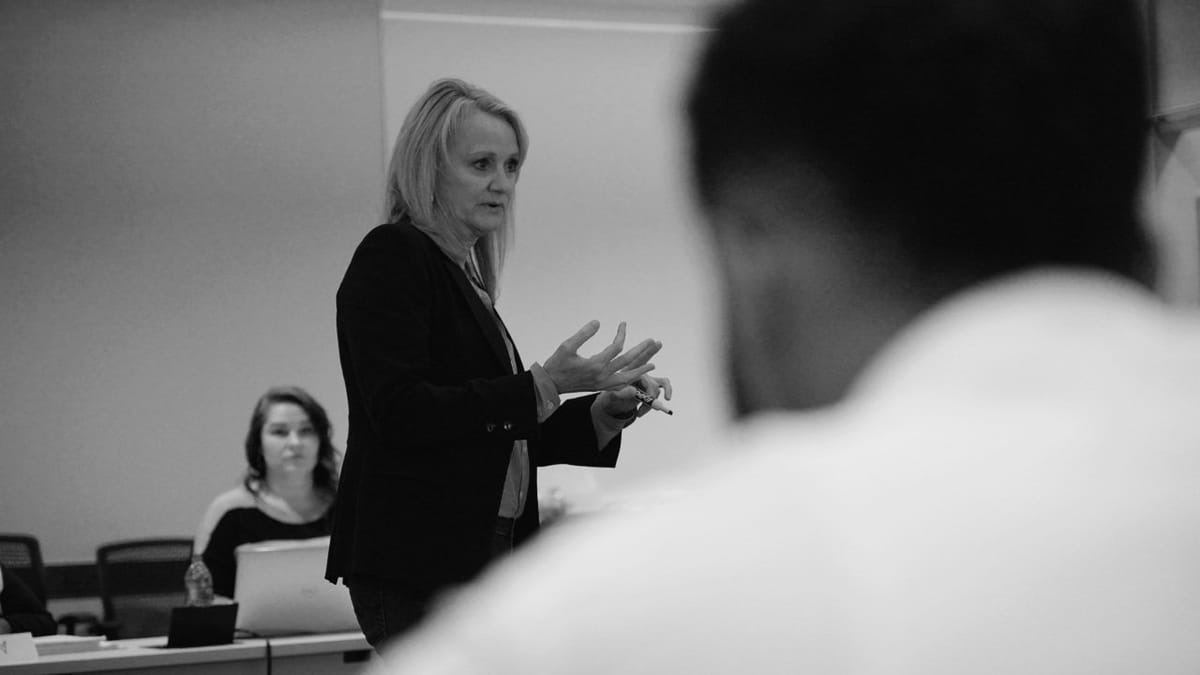
Gene Hopper is a serial entrepreneur and highly successful consultant. Her diverse career began at Apple Computer with time at Harvard Medical School and OU’s Health Sciences Center. She has been a central figure in the Oklahoma community and her footprint can be seen in hundreds of businesses in the community through her consulting, coaching, and training. Most recently, Hopper launched The Real Deal Collective, a curriculum-based program that equips local business owners with the fundamental knowledge, tools, and network they need to successfully grow their business. Learn more about this remarkably gifted entrepreneur and her most recent program impacting local businesses.
You have been very successful throughout your career as an entrepreneur. Tell us about your professional journey.
I have had a diverse professional journey. I finished college and got an internship with Apple Computer. This was right after the launch of the Macintosh, and it was an incredible experience! While with Apple, I worked on a major telemedicine project with the State of Oklahoma and the Health Sciences Center. The Health Center recruited me to leave Apple, and we launched what was, at the time, the largest telemedicine network in the country. This was an exciting project with lots of national and international attention.
While doing the telemedicine work, I became the medical center's CIO. I left OU and co-founded a venture-funded diagnostic company called Inoveon, also an adventure. After Inoveon, I went to Harvard Medical School’s Joslin Diabetes Center and did another health care start-up. I commuted during this time from Oklahoma (we didn’t have Zoom), and the travel was more than I wanted. I founded a consulting firm and have been a trusted advisor to business owners ever since.
Throughout your career, you have always found ways to give back to your community by supporting growing businesses. With your most recent venture, The Real Deal, you offer local entrepreneurs a unique opportunity to create connections with businesses and mentors in the community while receiving support through the six-month professional curriculum program. How did you develop the idea for The Real Deal Collective?
It can be lonely starting a company. Every small business owner can relate. After our company raised millions in outside funding, I like to say our company began to sparkle – people who would never talk to us started offering to help us. I call this the “I got a guy” phase. “If you need help with _____ (fill in the blank), I got a guy for you.” I remember saying, “If every start-up had this network, imagine what could be done.”
As a woman, I was often the only woman in the deal room, and it became clear how valuable this network was. It was because of this experience that I decided to launch the Posse and Tribe, which are our peer-to-peer advisory groups and the Real Deal Collective. Both are centered on creating communities that have each other’s back.
Tell our readers a little about The Real Deal and why it is so impactful for the participants that go through it?
The Real Deal Collective combines business planning, financial, and leadership resources with a high-value network to help small business owners close the gap in knowledge and skills and make a strategic jump. The power of the Real Deal is the people. You are in a room with intentionally diverse CEOs from all over our community, who know what it is like to walk in your shoes, and you learn from each other.
Who is the ideal candidate for The Real Deal?
The idea candidate owns a business that ranges from $500K - $20M in revenue, has 5 – 200 employees is privately held and has an owner that wants to take their company to the next level
What does The Real Deal look like in 3 years?
Our Alumni Program is launching this year! The goal is to have a community we can all draw upon, and the learning and connection deepen.
As someone who has attended the graduation for each Real Deal cohort, I’ve always been moved to tears by the stories shared between both the graduates and the sponsors. I don’t think I’ve ever seen a program where sponsors are just as impacted as the graduates. What type of businesses make good sponsors for this program?
If you have a vested interest in the success of small business, this is a great program to become involved with. Yes, we need your financial support, but we want your engagement and expertise even more.
The program’s track record has attracted a lot of attention and recent support from the City by providing ARPA funding for scholarships. What type of entrepreneur qualifies for this scholarship?
The scholarship funds are for businesses that are in Oklahoma City who are in a Qualified Census Tracts or minority owned.
Our readers would love to know a little bit about what has helped you be so successful in your career. What is one habit you believe has helped support your success as a leader?
Listening deeply. It is the fundamental skill of a thought partner.
With the experience you have now, what advice would you give a new entrepreneur?
I would tell them that it is supposed to be messy in the beginning otherwise you would have never launched. If you are doing the right things, there is something magic about three years. But setting expectations that it is supposed to be crazy normalizes how hard it is. Listen, there is a reason less than 10% of the population owns a business.
Finally, we all have our must-have luxieres in life. What is yours?
Long weekends that include food with friends, conversation, family, and pickleball.
To learn more about The Real Deal Collective, visit www.therealdealcollective.org. Kati Hanna is a partner with The Mettise Group. The Mettise Group focuses on providing business owners with clarity, capacity, capital and connections through their consulting, coaching and peer advisory groups.

